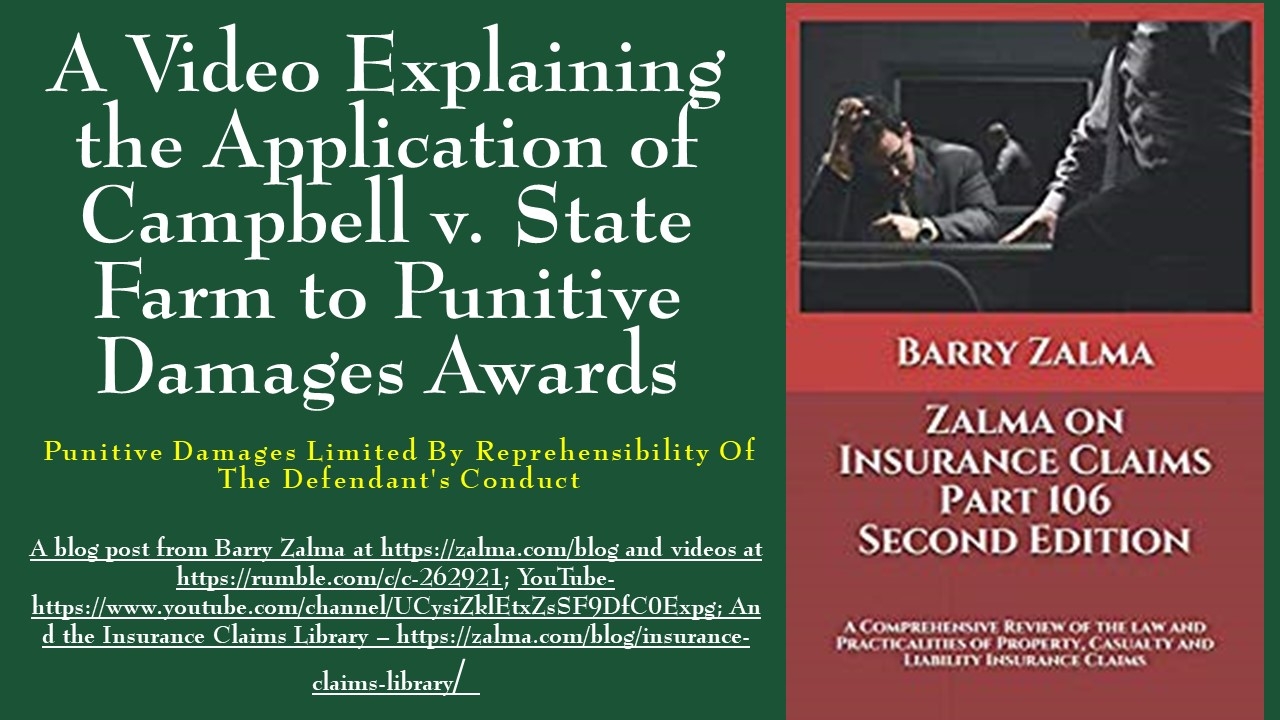A Video Explaining State Farm v. Campbell & Punitive Damages

Punitive Damages Limited by Reprehensibility of the Defendant’s Conduct
Read the full article at https://lnkd.in/gUcdHVa and see the full video at https://lnkd.in/gKHQAV3 and at https://lnkd.in/gJ5zQzi and at https://zalma.com/blog plus more than 3600 posts.
In State Farm Mut. Auto. Ins. Co. v. Campbell (2003) 538 U.S. 408, the United States Supreme Court held that “‘the most important indicium of the reasonableness of a punitive damages award is the degree of reprehensibility of the defendant’s conduct.'” (Id. at p. 419.) Moreover, in Campbell, the high court noted that its “‘holdings that a recidivist may be punished more severely than a first offender recognize that repeated misconduct is more reprehensible than an individual instance of malfeasance.'”
In California punitive damages have long been a part of traditional state tort law. [Pacific Mutual Life Insurance Co. v. Haslip (1991) 499 U.S. 1, 15, 111 S.Ct. 1032, 113 L.Ed.2d 1 (Haslip)], and the states have “broad discretion” with respect to their imposition.
We are 100% funded for October.
Thanks to everyone who helped out. 🥰
Xephula monthly operating expenses for 2024 - Server: $143/month - Backup Software: $6/month - Object Storage: $6/month - SMTP Service: $10/month - Stripe Processing Fees: ~$10/month - Total: $175/month
- Art
- Causes
- Crafts
- Crime
- Dance
- Drinks
- Film
- Finance
- Fitness
- Food
- Jogos
- Gardening
- Health
- Início
- Literature
- Music
- Networking
- Paranormal
- Outro
- Politics
- Stories
- News
- Party
- Science
- Religion
- Shopping
- Sports
- SyFy
- Politically Incorrect
- Philosophy
- Theater
- Technology
- Wellness



